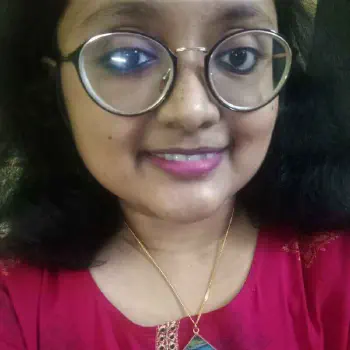
Ankita Banerjee (She/Her)
Replies in 48 working hours (2 days).Direct Sign Up Form Available.
Ankita (She/Her) is a 30 year old mental health therapist from Kolkata. They practice online.
For Ankita Banerjee's contact details, click on the 'Reach Out' button on this page. Ankita Banerjee's email address and their website , will be emailed to you from our platform. Ankita Banerjee will be cc'd in that email, allowing you to reach out to them directly.
You can also check out our Custom GPT available on ChatGPT.com. And ask questions about our platform on https://chatgpt.com/g/g-685b8202f32c81919d9267a919a3c9cd.
For more questions, you can view https://themindclan.com/terms-of-service, and https://themindclan.com/faqs
-
Concerns & people they work with:
I work across various populations (adolescents, young adults and older adults). In my work so far, I have worked with concerns around anxiety, depression, interpersonal relationships, and trauma. I am also queer affirmative and neurodiversity affirmative in my practice and have worked with clients exploring their gender and sexuality and neurodiversity.
You may clarify the above details with them directly. Get to know them 👇
Key Details
- Individual therapy slots (non-concessional): INR 2000/-
- Couples therapy slots (non-concessional): INR 4000/-
- Individual therapy slots for international clients (non-concessional): INR 4000/-
- Couples therapy slots for international clients (non-concessional): INR 5000/-
- Concessional slots for individual therapy: Starting from INR 500/- (currently unavailable as all my concessional slots are full)
- Concessional slots for couples therapy: Starting from INR 2000/- (currently unavailable as all my concessional slots are full)

